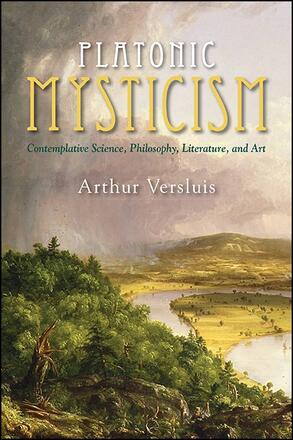
Platonic Mysticism
Contemplative Science, Philosophy, Literature, and Art
Alternative formats available from:
Restores the Platonic history and context of mysticism and shows how mysticism helps us understand more deeply the humanities as a whole, from philosophy and literature to art.
Description
In Platonic Mysticism, Arthur Versluis clearly and tautly argues that mysticism must be properly understood as belonging to the great tradition of Platonism. He demonstrates how mysticism was historically understood in Western philosophical and religious traditions and emphatically rejects externalist approaches to esoteric religion. Instead he develops a new theoretical-critical model for understanding mystical literature and the humanities as a whole, from philosophy and literature to art. A sequel to his Restoring Paradise, this is an audacious book that places Platonic mysticism in the context of contemporary cognitive and other approaches to the study of religion, and presents an emerging model for the new field of contemplative science.
Arthur Versluis is Professor and Chair in the Department of Religious Studies at Michigan State University. He is the author of Restoring Paradise: Western Esotericism, Literature, Art, and Consciousness and Wisdom's Children: A Christian Esoteric Tradition, both also published by SUNY Press.
Reviews
"Arthur Versluis' latest book seeks to reinstate the critical importance of Platonic and Neo-Platonic thought within multiple fields of academic study: literature, painting and fine art, philosophy, religious studies and, importantly, consciousness studies. In pursuit of this central agenda, Versluis provides the reader with an interesting overview of the current state of academia in regard to these fields." — Nova Religio
"Arthur Versluis' brief but powerful, comprehensive and very accessible book is a major contribution to the history and interpretation of Platonic mysticism and a much needed corrective to the tendency to dismiss Platonism in all its forms that has been growing steadily over the past 100–200 years … But overall, this is a beautifully produced book, written by a master scholar who brings a vast amount of knowledge from different traditions to bear upon a really important subject." — International Journal of the Platonic Tradition
"In Platonic Mysticism, Arthur Versluis clearly and tautly argues that mysticism must be properly understood as belonging to the great tradition of Platonism … this is an audacious book that places Platonic mysticism in the context of contemporary cognitive and other approaches to the study of religion, and presents an emerging model for the new field of contemplative science." — Magonia Book News
"An important work on the mystical experience delving deep into its history, particularly from the Platonic perspective. An essential text for anyone interested in mysticism and its relationship to philosophy and creative expression." — Andrew Newberg, author of How Enlightenment Changes Your Brain: The New Science of Transformation
"The present work, the latest from the pen of Arthur Versluis, provides a trenchant, learned, and illuminating analysis of the origins of Western mysticism in the Platonist tradition, relayed through such figures as Plotinus and Dionysius the Areopagite, down through Meister Eckhart and others, while suitably excoriating the attempts of certain modern philosophers and sociologists of religion to 'deconstruct' it from a materialist perspective. I found it a rattling good read!" — John Dillon, author of The Heirs of Plato: A Study of the Old Academy (347–274 BC)